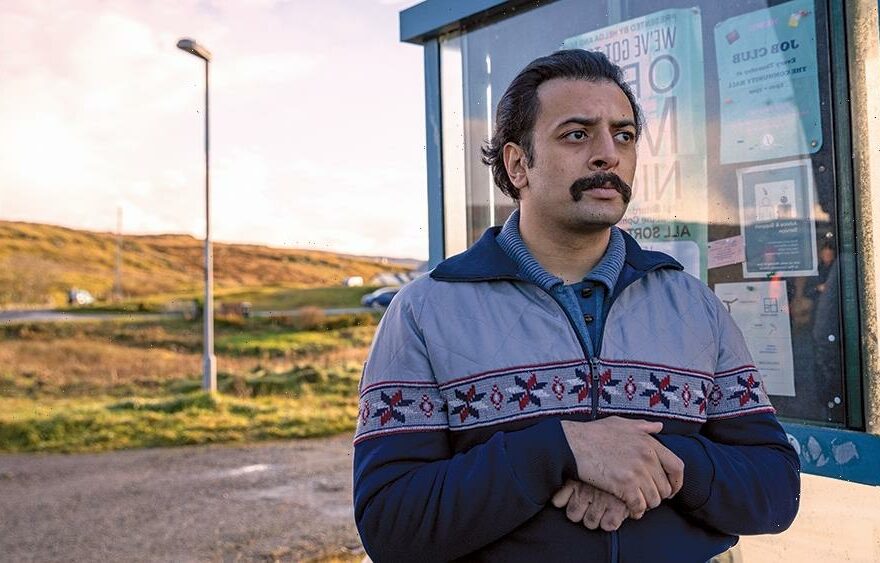When Vikash Bhai read the script for “Limbo” — Ben Sharrock’s film about refugees stuck on a Scottish island desperately awaiting permission to stay in the United Kingdom — he was struck by the “honesty, the heart and the humor.”
While Bhai was raised in Leicester, England, the character of Farhad, a pop culture-loving Afghani, struck several chords with him: growing up the son of an Indian immigrant and single mother, he knew what it was like to feel like an outsider with the world you dream of — in his case, the drama schools in London — in sight, but just out of reach.
Yet he also related to Farhad’s indestructible optimism, which overrides any persisting sadness: “My mother is my inspiration — she always had hope and that’s where I drew the bravery in Farhad’s character from,” he says. “It’s an homage to my mom.” (Bhai admits he had not yet told his mother that. “That would probably be quite nice,” he says. “I should give her a call right after this.”)
Determined to land the role, Bhai shaved his beard so he could show up for his audition with a mustache resembling the one that famously adorned Farhad’s idol, Freddie Mercury of Queen. (Bhai credits makeup designer Kat Morgan for how Mercury-esque his ’stache appears on screen).
His desire for the role carried him through not one or two, but seven auditions. The director says that the last audition was just to show the executives funding the film that Bhai was perfect for this secondary but crucial role. “We asked Vikash to come in character and then fired questions at him for him to improvise off and he was just brilliant —he had the backstory and details and an answer for everything,” Sharrock says.
Farhad befriends the protagonist, Omar (Amir El-Masry), who had been a talented oud player before fleeing Syria. But Omar is riddled by guilt over leaving his parents in Turkey, and especially his brother, who stayed in Syria to fight. His instrument now sits unused in its case, a burdensome, haunting heritage.
Farhad understands the danger of being consumed by pain and loss. “In Afghanistan we have story about bird who forget how to sing,” he tells Omar, who asks what happens to the bird in the story. “He die. Of sadness.” But Farhad is resolute, becoming his friend’s manager-agent and even booking him a gig of sorts to inspire Omar to return to the living.
Farhad, who at one point steals a chicken and names him after Mercury, was a fun but also inspiring character to dive into. (“Freddie the chicken should be the Scene Stealer,” Bhai says, though he admits the fowl had a double “for days when he just didn’t feel up for it.”)
“Farhad wears his heart on his sleeve and is not afraid to be who he wants to be and I know I’d like to be a bit more like that,” says Bhai, who watched Mercury interviews and listened to Queen every day to warm up. (Note: this report was entirely written with Queen playing.)
Since the movie strikes a delicate balance between pathos and humor, Bhai would constantly recalibrate to find the right tone. “It definitely was not easy because you don’t want to be making light of someone’s situation,” Bhai says. “I’d have to sheepdog myself.”
Sharrock praises Bhai for that sense of corralling his performance and for his immersion in the process. “He was totally unfazed and receptive to everything,” Sharrock says.
The biggest challenge for Bhai, who has largely worked in theater, was learning to work “within the frame.”
“The camera is a different beast and it was like going to camera boot camp because with Ben, you’re going 10 steps ahead of that,” he says. Sharrock used the old-fashioned Academy-ratio and shoved his actors right up into the camera for wide-angle close-ups.
“It was a strange experience, but you just throw yourself and trust your director.”
Source: Read Full Article
